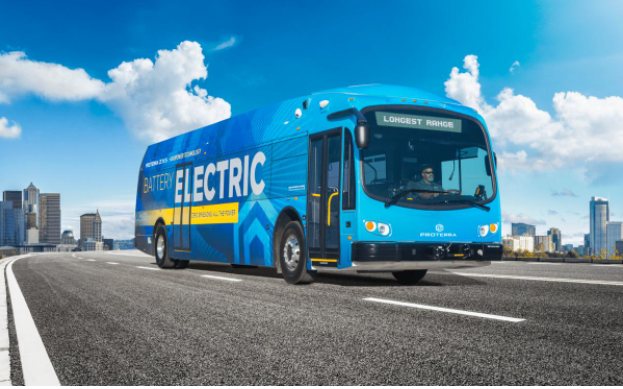The province’s capital will see the arrival of 10 electric buses over the next year. However, there’s no timeline for when towns up-Island or on the Sunshine Coast will see the electron machines.
BC Transit said in a release the heavy-duty buses will arrive in Victoria this fall, with the rest starting to be delivered in 2023. The 10 buses will be built by Proterra in California for a cost of $20 million including a Proterra Energy EV fleet charger, according to a statement from the company.
It’s a start to replace 500 heavy-duty buses across the province by 2040, according to BC Transit. Costs are being shared with the Government of Canada covering 40 per cent and the province of B.C. contributing another 40 per cent.
While the transit corporation says electric buses have many advantages, they will not be announced for other Island cities until later on. Low-carbon fleet program director Chad Berndt says this is because many infrastructure upgrades will be needed.
“We’re looking to deploy these buses in larger cities at first, especially Victoria. This will be a good project that will help us generate some lessons learned, understand the technology and the limitations a little bit better,” said Berndt.
He adds BC Transit is hoping the trial will help introduce the buses in a more streamlined fashion in other areas.
“We don’t have any timelines yet that we can share as to where and when. We’ll be working with local governments,” he said.
The switchover of buses will see quite a few buses go out of commission, but Berndt says these buses are out of life and it’s time for them to be replaced.
“They’ve served a good life in public transit, and now they’ll go either be recycled or some buses are repurposed,” said Berndt. “Either for training, whether it’s fire departments or mechanical schools or even provinces buy them for certain projects.”
Despite the infrastructure needing to be built, Berndt says the Island has a good climate for battery-powered transit as temperatures are mild. He says if temperatures were more extreme there would be more strain on the batteries to create heat as there’s no engine creating excess temperatures.
The transit company is looking forward to the changes over the next decade and hopes to iron out the wrinkles in the fabric of electric buses.
“We can’t replace the full fleet with electric buses today, charging them at the depot even if we wanted to,” he said. “So we’ll need to rely on the continued advancement of technology, likely higher energy densities for batteries, longer range buses and potentially other charging options.”




